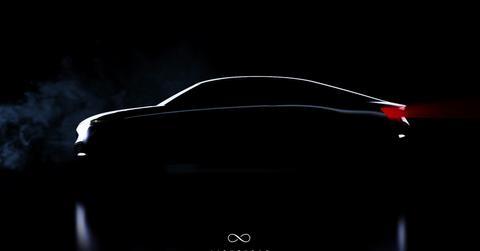Fully Solar-Powered EV Wins Major Award For Combating Climate Change
A new award at CES 2018 highlights startups that are using the latest technology to battle climate change. Solar-powered vehicle Lightyear One, an EV "that charges itself," received acclaim in an industry that's been long skeptical of the tech.
Updated Nov. 19 2020, 9:38 p.m. ET
Adding solar technology to electric vehicles is an ideal evolution in theory, but for many in the industry, practicality remains an issue. This skepticism hasn’t stopped a Dutch startup from developing Lightyear One, a vehicle that finally has the ability to be powered by just sunlight. Their revolutionary development earned them the new Climate Change Innovator Award at CES 2018.
What does this mean? To begin with, Lightyear will receive a plaque for the award and will be recognized during the CES 2018 Sustainability Day on Thursday, January 11th. The Consumer Technology Association announced in October that they would be featuring this new award to highlight multiple startups that are using technology to eliminate greenhouse gas emissions. Gary Shapiro, CEO of CTA, believes the tech industry needs to be a major player in climate change.
"Consumer tech already provides many solutions to address climate challenges well beyond the electronics industry. Home automation systems cut unnecessary energy use, tech-enabled telecommuting reduces car travel and emissions, and newer tech products use less electricity. And there's nowhere better than CES, the global stage for innovation, to scout the next startup that can deliver meaningful emission reductions."
Many in the EV industry have been skeptical of using solar panels, including one of the biggest innovators, Elon Musk. Last July, he noted that it would take a “transformer-like” system that popped out extra solar panels to retrieve a charge, and that would be good for up to 30 miles per day. The Toyota Prius, which featured a solar roof, backed that claim as it was only useful to help power electronics in the vehicle and slightly extending battery life.
Fully-fledged solar-powered cars have some considerable cons if they don't have reliable sunlight, ranging from less power to lower performance. This obstacle has lead to the perspective that solar-assisted EVs are the next evolution. Not only could this approach add more miles to a vehicle’s range, but it could dual as a mobile power station with bidirectional charging.
All of this hasn’t stopped this Dutch startup from thinking ahead to create the Lightyear One. The new electric car can charge itself hassle-free as it sits in a driveway, and the battery inside holds a range of up to 500 miles. This would give it ample room to hold a significant charge when there’s no sunlight, and it would still feature all the traditional methods of EV charging, if needed.
Of course, it’ll still be a while before the Lightyear One is released. In terms of cost, this technology is predictably not going to be cheap. More specifically, the first 10 cars will be given out in 2019 with the next 100 the following year, and the starting price will be at just over $140,000 USD.
There’s also a lot of questions that remain as it goes into development, such as how efficient it can charge through cloud cover. Lightyear One may not be feasible for those that will keep it stored away from the sunlight, but it certainly provides a more easier, efficient way to use an electric vehicle for some. At the very least, it’ll be interesting to see how this vehicle performs and changes the solar aspect of the EV industry.
